 Petzlover
Petzlover Dorgi is originated from United Kingdom but Korean Mastiff is originated from South Korea. Dorgi may grow 46 cm / 18 inches shorter than Korean Mastiff. Dorgi may weigh 62 kg / 136 pounds lesser than Korean Mastiff. Dorgi may live 3 years more than Korean Mastiff. Both Dorgi and Korean Mastiff has same litter size. Dorgi requires Low Maintenance. But Korean Mastiff requires Moderate Maintenance
Dorgi is originated from United Kingdom but Korean Mastiff is originated from South Korea. Dorgi may grow 46 cm / 18 inches shorter than Korean Mastiff. Dorgi may weigh 62 kg / 136 pounds lesser than Korean Mastiff. Dorgi may live 3 years more than Korean Mastiff. Both Dorgi and Korean Mastiff has same litter size. Dorgi requires Low Maintenance. But Korean Mastiff requires Moderate Maintenance
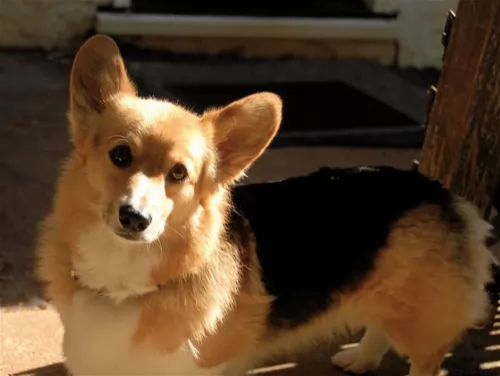 The Dorgi is a designer crossbreed whose origins are not entirely known, however it is a popular breed, being a mix between a Dachshund and a Pembroke Welsh Corgi.
The Dorgi is a designer crossbreed whose origins are not entirely known, however it is a popular breed, being a mix between a Dachshund and a Pembroke Welsh Corgi.
The Dorgi itself is new breed and therefore has a short history, but both dogs used to develop the Dorgi – the Dachshund and the Corgi – have their own unique histories.
The Dachshund originated in Germany in the 1500s and the Pembroke Welsh Corgi originated in the United Kingdom centuries ago.
 This large breed dog is also known as the Mee Kyun Dosa. In spite of his huge size, he isn’t aggressive at all and is bred to be a companion dog.
This large breed dog is also known as the Mee Kyun Dosa. In spite of his huge size, he isn’t aggressive at all and is bred to be a companion dog.
He was originally developed to be a working dog. The dog was developed in the late 1800’s from European and Asian working breeds. Those interested in dog breeds suspected that a crossing of the Japanese Tosa-Inu with the Neapolitan Mastiff and the Dogue de Bordeaux brought about the breed. They also thought that the Saint Bernard and English Mastiff were brought in later on as well.
These large molosser dogs have been developed through years of inbreeding. It is one of the biggest dogs in Korea.
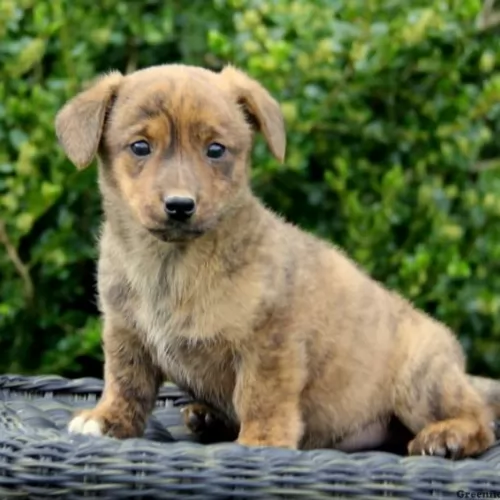 The Dorgi is known for his long body, short legs and the erect ears of the corgi. He is a small dog, measuring roughly 20-30cm in height and weighing in the region of 6 – 12kg.
The Dorgi is known for his long body, short legs and the erect ears of the corgi. He is a small dog, measuring roughly 20-30cm in height and weighing in the region of 6 – 12kg.
Many people also refer to him as the sausage dog. The look of your Dorgi can depend quite a bit on whether he looks more like a Corgi or a Dachshund, so for instance the coat can be short and smooth, or thick and coarse.
They can surprise you with their looks, and some are born with long tails while others are born with bobtails. The coat comes in many colors too, from tan to brown to black and white or a mixture of these colors.
The Dorgi is full of the joys of life, just loving all the attention he gets from his human family. Of course, in return for this affection, he offers love, loyalty and plenty of fun and games.
He is an energetic breed too and is always ready to join in any games with the children in the home as well as with cats and dogs living in the home too.
Training and socialization will also be needed for the Dorgi who is intelligent and easy to train. He has wonderful behavior when trained, being obedient and relaxed around visitors to your home.
Social and sweet, this is one little dog who is guaranteed to make a wonderful pet and companion, as he loves human companionship and never wants to be left alone for too long. He is alert too, so while he is small and no real threat to an intruder, he is willing to do what it takes to protect his human family and to bark to alert you.
 You can’t help but stare at the Korean Mastiff because of his strong, muscular neck of loose skin that forms dewlaps. His face is wrinkled and he has a cumbersome, sluggish gait.
You can’t help but stare at the Korean Mastiff because of his strong, muscular neck of loose skin that forms dewlaps. His face is wrinkled and he has a cumbersome, sluggish gait.
He is a large dog standing at anything between 59 to 76cm in height, both male and female. He can weigh between 65 to 74kg. He is noticeable because of his fairly loose fitting coat, which is short and smooth and which is a rich, shiny reddish, orange or brown colour.
The nose of the dog is broad and dark, the ears soft and floppy and he has eyes which are set wide apart.
The Korean Mastiff is reserved with strangers but he is friendly and even tempered with his human family, making an ideal pet.
He is looked upon as a gentle giant, being an oversized playmate for children and he also tolerates other pets in the home.
He isn't an overly energetic dog, but that doesn't mean he shouldn't be exercised. He will need long walks to avoid him putting on weight.
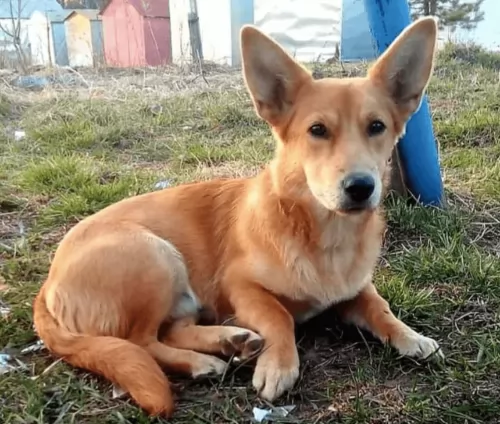 The Dorgi is such a sweet little designer breed of dog that happens to also be low maintenance. Apart from being a little dog full of energy and attitude, he is loving and loyal as a family pet too, being gentle around children and making a splendid pet.
The Dorgi is such a sweet little designer breed of dog that happens to also be low maintenance. Apart from being a little dog full of energy and attitude, he is loving and loyal as a family pet too, being gentle around children and making a splendid pet.
He isn’t going to eat you out of hearth and home either and he is a fairly healthy breed as well.
When you bring a Dorgi into your home, you’re bringing in a whole lot of happiness as he is an awesome family member who wants to be counted in on everything the do.
 Your huge Korean Mastiff is a good natured dog who isn’t aggressive. He loves being with his human family and makes a particularly good pet when he has been trained and socialized.
Your huge Korean Mastiff is a good natured dog who isn’t aggressive. He loves being with his human family and makes a particularly good pet when he has been trained and socialized.
He likes a firm but fair owner who takes a leader-of-the-pack role. In spite of his largeness and sluggishness, he can be quite agile and makes a good watchdog too.
All round, the Korean Mastiff, known as a gentle giant, is capable of making you a splendidly friendly, loving canine companion.
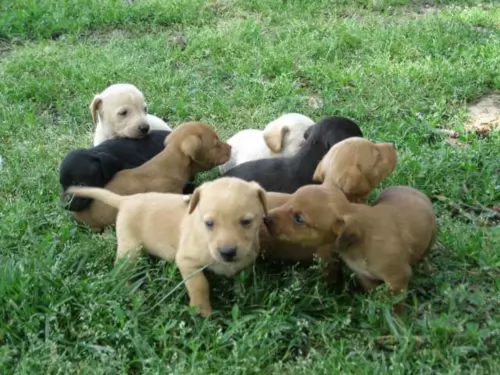 Because the Dorgi is a hybrid breed, he promises to be quite healthy, but on the other hand, it could be that he inherits some of the common health problems associated with either the Corgi or the Dachshund.
Because the Dorgi is a hybrid breed, he promises to be quite healthy, but on the other hand, it could be that he inherits some of the common health problems associated with either the Corgi or the Dachshund.
Obesity is always a problem with a small dog, as they’re so sweet, you just want to be popping treats into their mouths all the time. It is important to follow a healthy diet for your pet however if you want to stave off common dog disorders.
An obese dog faces a shorter life expectancy, and some of the major health issues that an obese Dorgi has to contend with is diabetes, osteoarthritis, high blood pressure and cancer among others. Certainly better, healthier pet food choices can help save you money on vets fees.
Diabetes in canines is just as serious as in humans and its a glucose-insulin complication where the pancreas isn’t producing enough insulin.
Sugars build-up in the blood and these can cause damage to your dog’s eyes, heart and kidneys. You may notice your pet gaining weight, being more thirsty, being tired and having cloudy eyes which could be indicative of cataracts. Take your pet to the vet as insulin shots may be required.
 Treat your big Mastiff dog like the wonderful fur-child he is and make sure your attend to all his medical needs to avoid pain and discomfort for him.
Treat your big Mastiff dog like the wonderful fur-child he is and make sure your attend to all his medical needs to avoid pain and discomfort for him.
Cherry eye is a fairly common health issue with this breed. It affects the tear gland of the third eyelid, and if left untreated, can lead to ongoing eye problems.
All dogs have a third eyelid, as well as two tear producing glands to lubricate the eyes. Its an important protective component to eye health in dogs. When the connective tissue that holds the gland in place is damaged or weak, there is a red protrusion of the gland from the lower eye. This is a congenital disorder. Don’t ignore it, but get your pet to the vet so you can catch it early.
Canine bloat, known as gastric dilatation and volvulus can be a killer disease for your pet, more so with deep-chested, large breeds.
Gas accumulation is known as bloat, and its the accumulation of gas which can cause the stomach to rotate. A dog can go into shock from bloat. The reason for this is that the stomach expands, putting pressure on veins. Blood can’t flow as it should and the blood supply gets cut off to the stomach.
Your dog could be vomiting, restless, the stomach hard and bloated or he may be drooling. Dogs who gobble their food down and eat just one large meal a day have an increased susceptibility to GDV than other dogs.
The wrong ingredients of a dog’s diet can also contribute to bloat. High quality food and feeding your pet smaller meals can help.
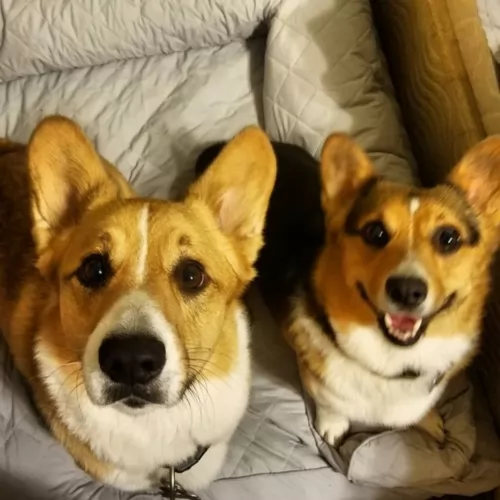 Your Dorgi’s coat will be shortish, and shedding is minimal so a good brush twice a week will be perfect for this pet of yours, and he will love the attention you give him while doing so.
Your Dorgi’s coat will be shortish, and shedding is minimal so a good brush twice a week will be perfect for this pet of yours, and he will love the attention you give him while doing so.
He is an active breed so he will require regular exercise. Take him with you on your walks. Even if you have a small garden, he’ll love fetching a ball for you.
If you give your Dorgi commercially manufactured dog food, remember to be guided by the feeding recommendations to avoid obesity.
Its always a good idea to add in some raw meat to his diet to keep his nose wet and his skin free from being dry and itchy. You can also add in some cooked brown rice, vegetables and chicken for variety.
Always ensure that a bowl of fresh water is constantly available.
 A Korean Mastiff is an easy dog to groom with his short smooth coat. He is a moderate shedder so a brush twice a week will be sufficient to maintain the shiny, smooth condition of his coat.
A Korean Mastiff is an easy dog to groom with his short smooth coat. He is a moderate shedder so a brush twice a week will be sufficient to maintain the shiny, smooth condition of his coat.
Because the dog has lots of skin and folds, these folds will need to be washed and kept clean as grime can collect.
While you're busy attending to his skin check his nails too and check inside and outside his ears for signs of redness and irritation.
Puppies use up more energy than mature adults, requiring a diet of good quality protein. Dogs that have been spayed or neutered will require less calories as will senior dogs.
Korean Mastiffs require high quality nutrition, and if its dry kibble, make sure its the best brand. Mix in some home-made food such as cooked chicken, brown rice and vegetables from time to time as well as some raw meat occasionally.
Protein and fat from good sources are top ingredients for your Korean Mastiff. Avoid food with allergens such as corn and wheat, sweeteners, preservatives and colorants.
Make sure your large pet has constant access to fresh water.